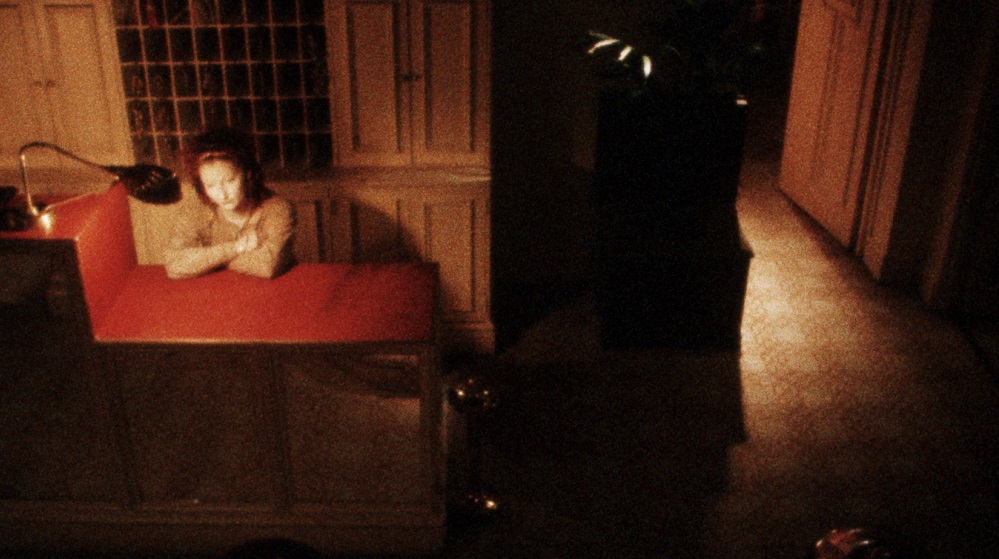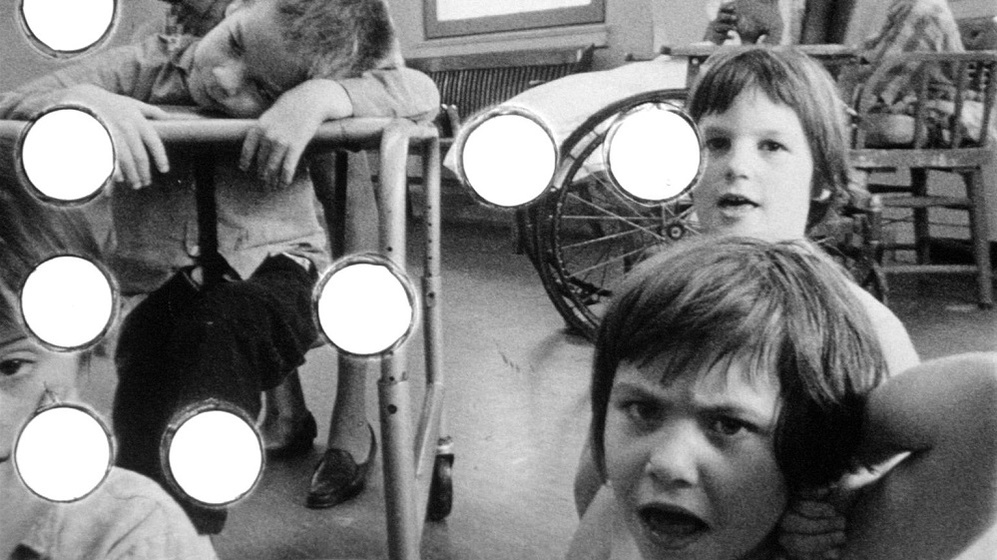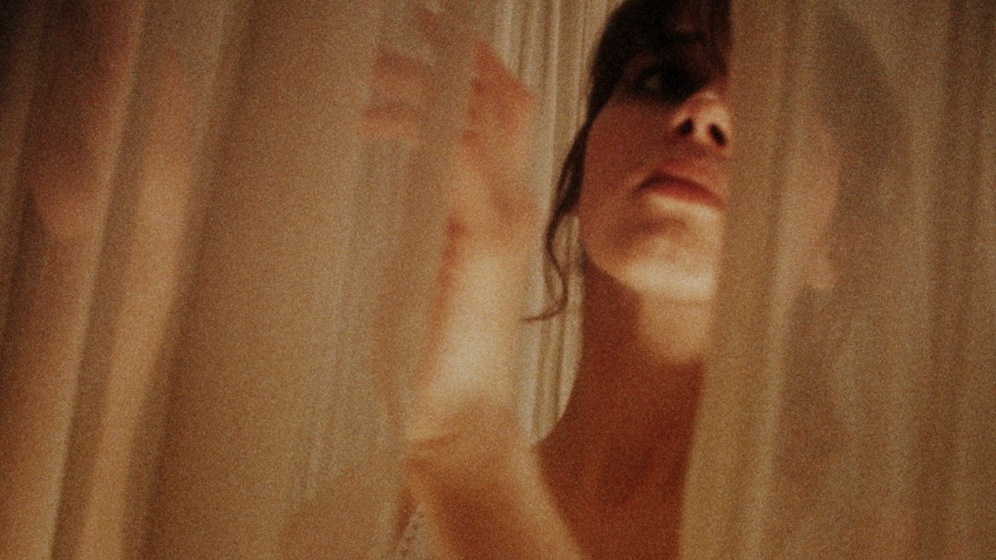In a hotel lobby, a young receptionist goes about her duties as she watches the guests wander past her desk in the course of a long night. Through her eyes, we see how the residents gradually acquire a ghostly presence, moving slowly as if lost in a dream. The dreamlike plays a fundamental role in the plot of the film. Inspired by Cocteau’s slow motion, Nightshift also evokes Resnais’ Last Year in Marienbad (1961) in its oneiric atmosphere and the confusion between reality and illusion, and Jean Vigo’s Cero en conducta (1930), recreating the pillow fight where the conventional pace of the action is slowed down.
With an unconventional narrative form, the film is based on the director’s experience as a night receptionist in a London hotel, where she worked for a time. It was produced on a very tight budget and with limited means. Filming took place in the same hotel over four nights. The experimental filmmakers Anne Rees-Mogg and Jon Jost, director of the extraordinary photography, and the British avant-pop band Penguin Cafe Orchestra, who provided the music, appear as actors in the film.
Nightshift, Robina Rose, 1981, 16mm to DCP, 75 min.
Copy provided by Cinenova.
Nightshift has been digitally restored by Lightbox Film Center (Philadelphia) in collaboration with the British Film Institute and Cinenova. Restoration funding provided by Ron and Suzanne Naples.


